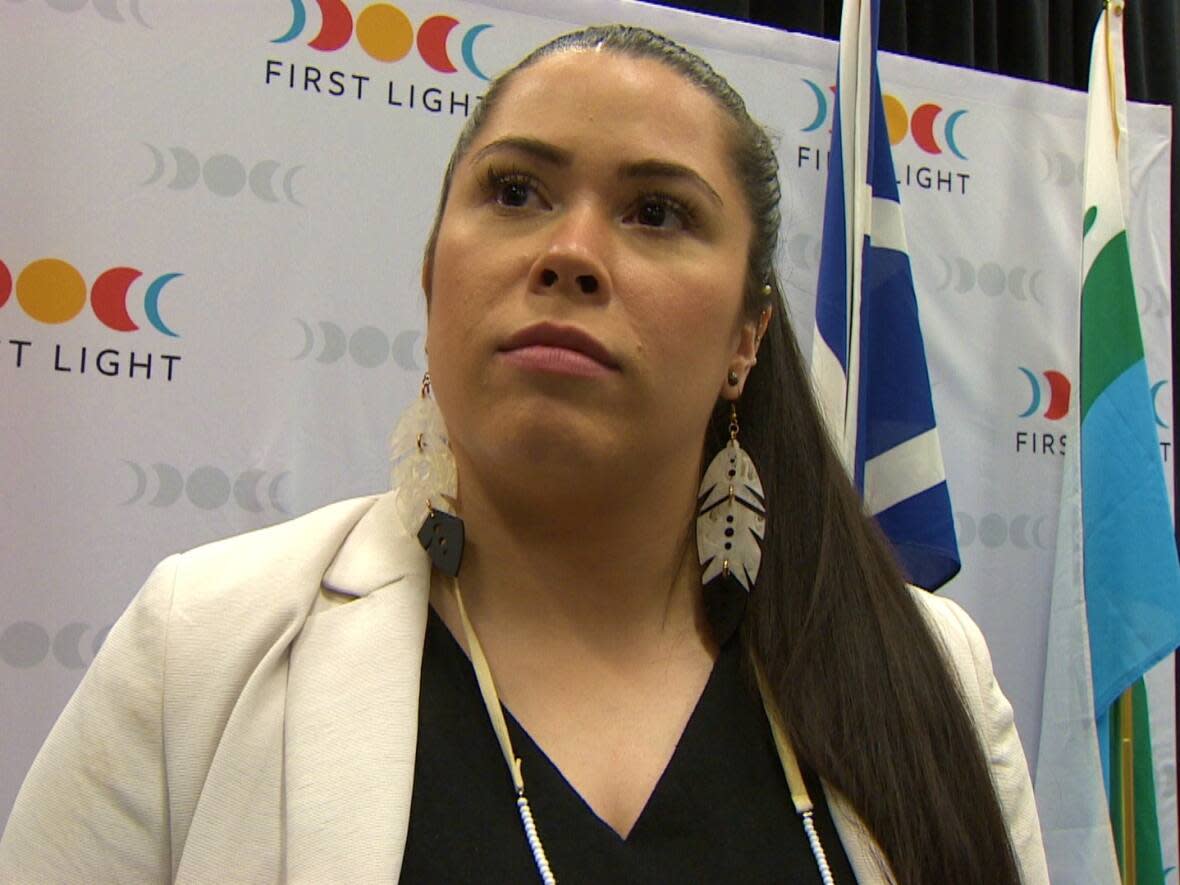Apology, school curriculum redesign among recommendations in First Light's reconciliation report


A new community plan from Indigenous coalition First Voice lists 42 recommendations directed at St. John's and Newfoundland and Labrador as a road map for reconciliation.
First Voice released the plan, called Our Shared Vision: A Path Toward Truth and Reconciliation in St. John's, at a public event in the city Thursday.
"This has been three years in the making," said Stacey Howse, executive director of Indigenous non-profit organization First Light, the lead partner in First Voice.
"This is entirely driven and led by the urban Indigenous community and we wanted to hear what were the matters that you wanted to focus on toward reconciliation. From that we developed a set of priority areas."
Each call for change is outlined under one of four specific areas:
Education, training, and employment.
Housing and homelessness.
Infrastructure and service delivery.
Justice and human rights.
One of the more significant recommendations is a redevelopment of kindergarten-Grade 12 curriculum to include Indigenous histories, culture, stories and language, and discussion of the legacy of colonialism. First Light says the process must be undertaken with the collaboration of all Indigenous groups in the province, including urban Indigenous people.

The plan also calls for an apology from the provincial government for the harm it caused by not including Indigenous people in Newfoundland and Labrador's Terms of Union for joining Confederation in 1949.
"Such an apology must be drafted in full collaboration with all Indigenous groups in the province, including urban Indigenous people, and should become a foundation for establishing a renewed relationship between the government of Newfoundland and Labrador and Indigenous Peoples in the province," reads the plan. Work on the plan began three years ago when First Voice put together its urban Indigenous coalition to map out its future.
Howse said the plan is a guide for a community where the inherent rights of Indigenous people are actively supported and respected.
Charlotte Winters-Fost, an Inuk elder who co-founded First Light in 1983 — when it was known as the St. John's Native Friendship Centre — agreed.
"We have come a long ways. I would like to see many of the [government] departments and service delivery programs decolonized with their programs being more geared to an Indigenous-oriented lens," Winters-Fost said.
"Those kinds of discriminatory actions and behaviours from people are still there today. I think the Friendship Centre and this movement is there to make the general population be aware of who we are and gives us a sense of pride. It's not easy being an Indigenous person coming into a larger city and feeling the effects."


